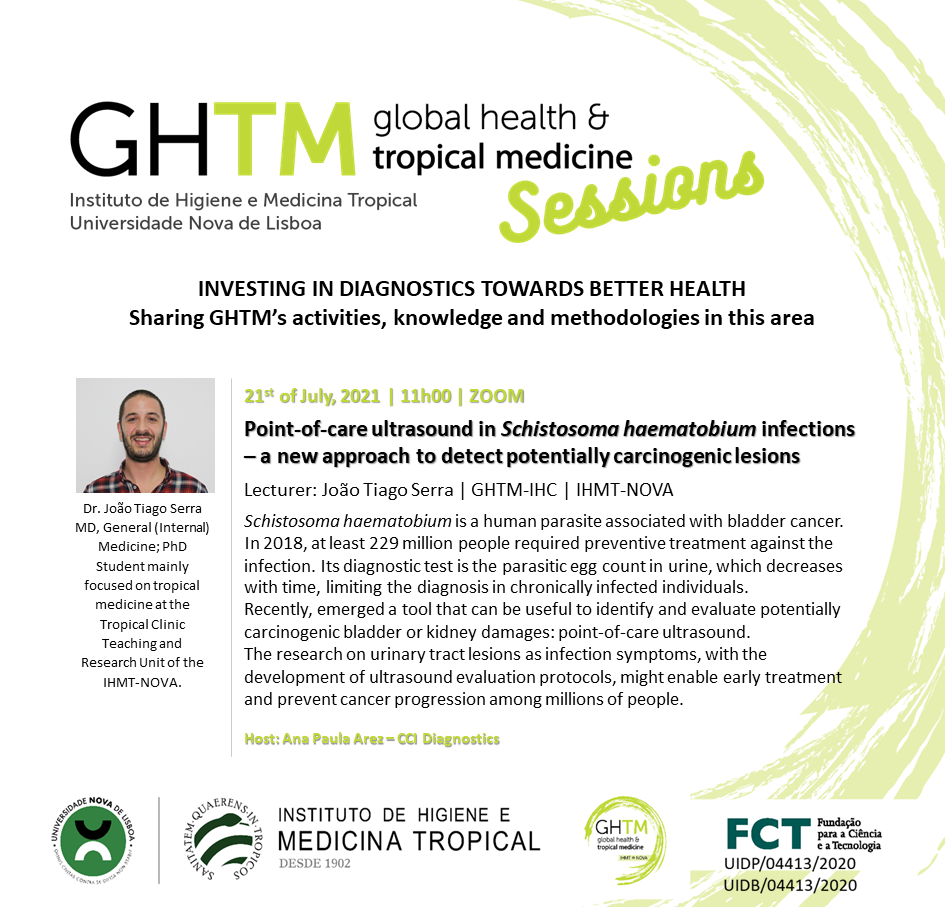The Global Health and Tropical Medicine Research Centre has the pleasure to invite you to attend the GHTM Session 9 21-07:
«Point-of-care ultrasound in Schsistosoma haematobium infection – a new approach for the detection of potentially carcinogenic lesions».
The 9th GHTM Session, on Wednesday the 21st of July, 2021, at 11:00 am, is free, open to all, and will take place in Portuguese, through Zoom access:
Zoom: 9th GHTM Session
ID: 889 3926 2378
Password: 787895
The lecture on will be delivered by João Tiago Serra, MD and PhD Student mainly focused on tropical medicine at the Tropical Clinic Teaching and Research Unit of the IHMT-NOVA.
GHTM Session 9 21-07-21

The lectures’ cycles GHTM SESSIONS, of the Global Health and Tropical Medicine Research Centre, are an opportunity to share the work of its researchers. This particular cycle – Cross-cutting issues / Diagnostics – is dedicated to the scientific innovations produced in this R&D Centre in the area of infectious disease diagnosis.
GHTM SESSIONS will comply with the following program.
_________________________________________________________________________
Dr. João Tiago Serra’s lecture abstract:
Point-of-care ultrasound in Schsistosoma haematobium infection – a new approach for the detection of potentially carcinogenic lesions
Schistosoma haematobium is one of four parasitic agents classified by the International Agency for Research on Cancer as being carcinogenic to humans. It`s well established the association between Schistosoma haematobium chronic infection and bladder cancer development. Estimates show that at least 229 million people required preventive treatment in 2018 in order to reduce and prevent morbidity. Nevertheless, diagnostic tests in chronically infected individuals are less sensitive due to a progressive lower egg excretion in urine, limiting disease diagnostic and morbidity prevention. Point-of-care ultrasound has emerged as a novel tool that could prove most useful addressing the identification and evaluation of bladder and kidney damage, which represent potentially carcinogenic lesions. The development of simplified ultrasound evaluation protocols that could be field applied, and the research on the role of urinary tract lesion identification as a proxy of infection, would potentially enable early treatment and prevent cancer development among millions of people.
_________________________________________________________________________
We count with your presence!
Don’t forget to share! The more the merrier!